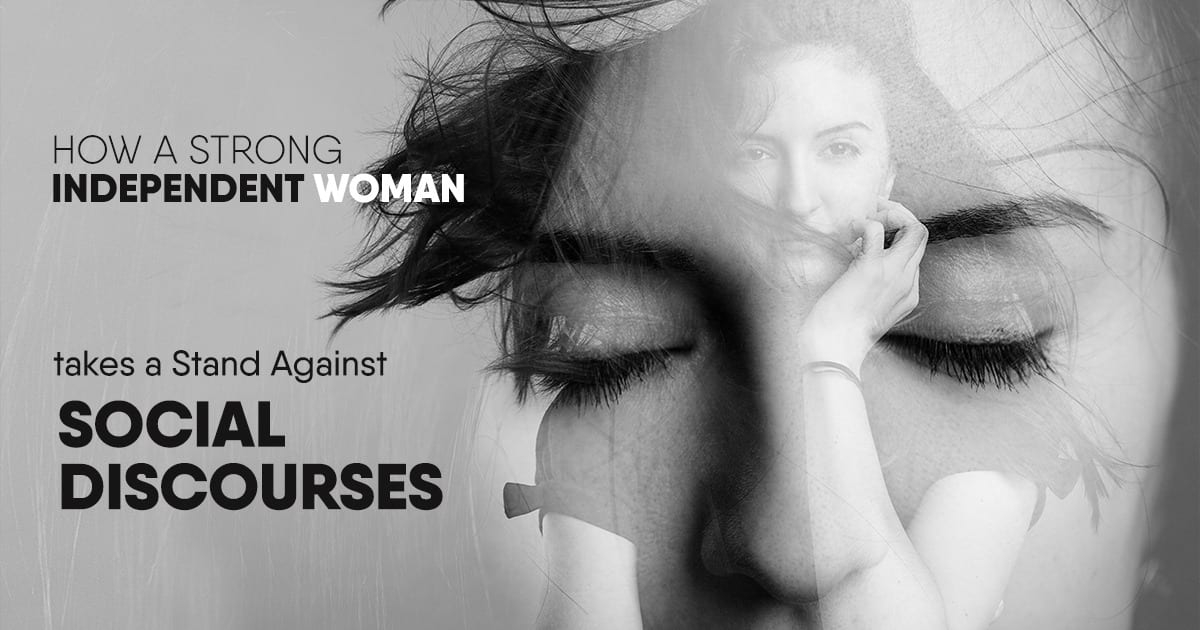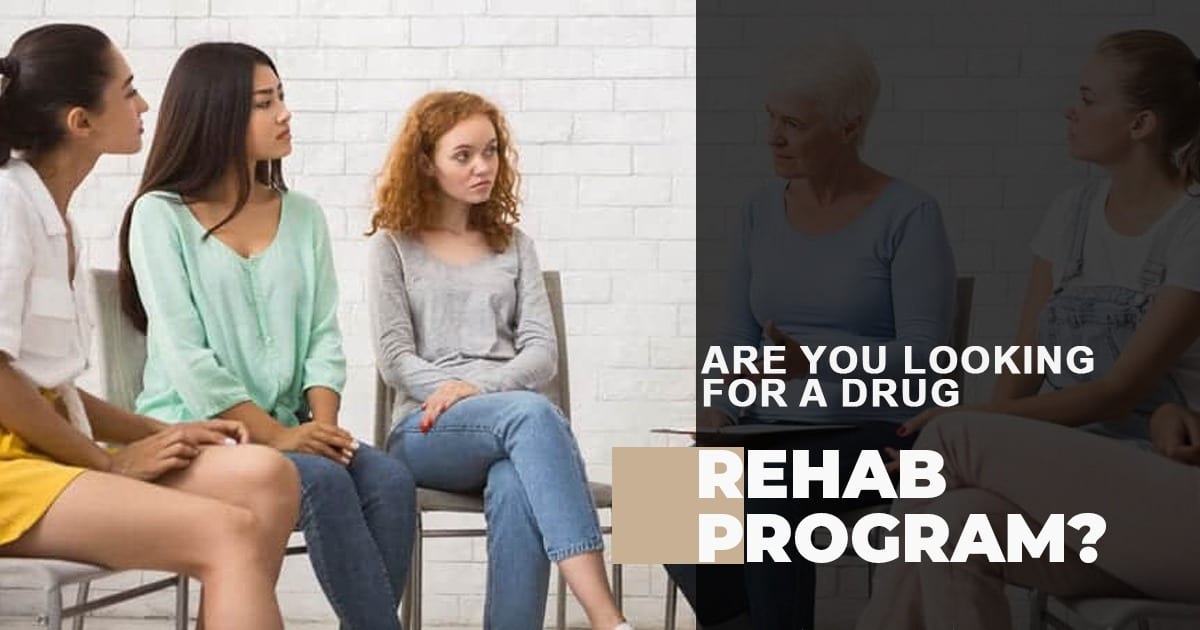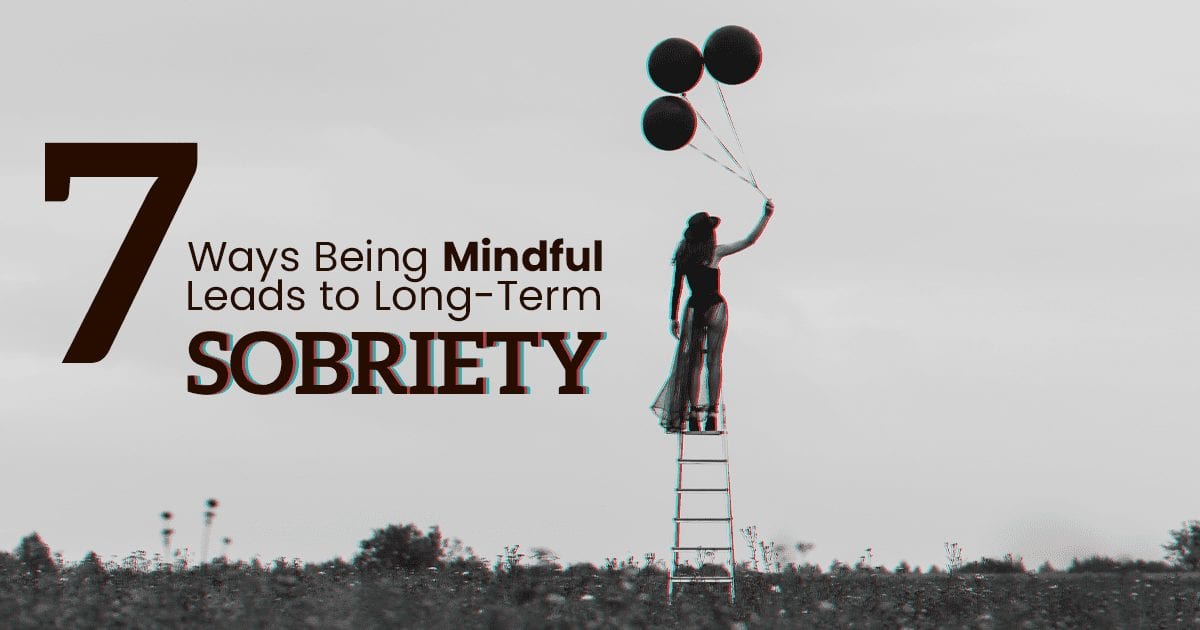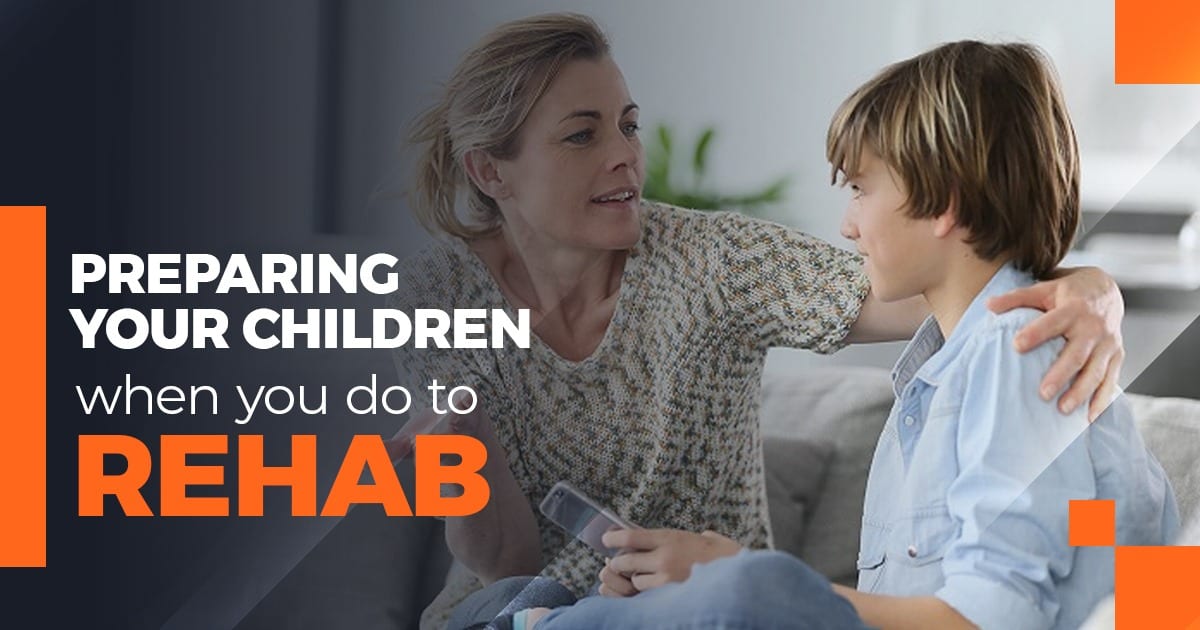
How A Strong Independent Woman Takes a Stand Against Social Discourses
While some progress has undoubtedly been made in gender equality, there is still such a reluctance to embrace the concept of a strong independent woman in the workplace, in

While some progress has undoubtedly been made in gender equality, there is still such a reluctance to embrace the concept of a strong independent woman in the workplace, in

Not everybody who struggles with substance use disorders reports being exposed to an emotionally traumatizing experience before their drug use, but most of them do. According to a study

The practice of being mindful can be a valuable ally in maintaining long-term sobriety. Letting go of any preconceived notions you have towards “new-age” practice is a process that may

Drug Addiction Substance use disorder is a chronic disease that drives people to continuously use drugs despite being aware of the harm it is doing to their bodies and their

Once you’ve completed addiction treatment, you will probably want to look for a job. While some recovering addicts will have jobs to return to after treatment, others aren’t as lucky.

According to studies, about 20% of the population demonstrate disordered eating behaviors. What is disordered eating? It is a term that describes a broad range of conditions characterized by irregular

Wellness for women in recovery requires a deliberate effort to manage addiction while adopting healthy life choices. According to SAMHSA, wellness is being in a healthy mental and physical state.

Socializing Sober Socializing sober doesn’t mean missing out on fun. Sober gatherings offer a chance to create meaningful connections without the distraction of alcohol. Whether hosting a small sober girls

Motherhood is one of life’s most rewarding yet challenging journeys. For moms navigating sobriety, the path can feel overwhelming, but it’s also a powerful opportunity to transform not only your

Struggling with addiction takes a toll not just on ourselves, but also on the people we care about. But overcoming any form of drug abuse is easier said than done,

Anchored Tides Recovery’s Outpatient Program (OP) offers a flexible and supportive treatment option for women seeking ongoing recovery from addiction and mental health challenges. Our OP provides personalized therapy sessions, group counseling, and holistic support tailored to each individual’s needs. This program allows women to continue their daily activities and responsibilities while receiving the care and support necessary for sustained recovery. With a compassionate approach, our Outpatient Program fosters healing, resilience, and personal growth, empowering women to achieve and maintain long-term wellness in a nurturing and understanding environment.

Music Group / Rock 2 Recovery
Bio Coming Soon…

Admissions Coordinator
Being the first point of contact for women seeking aftercare for their recovery in alcohol and drug addiction; I am driven & passionate about helping them with their next steps. I have always been passionate about helping others & this position allows me to see those dreams come to life.
You can always find me in nature during my self care time, usually hiking, roller skating by the beach, or surfing the waves. I enjoy music to feed my soul & get grounded. I lead a healthy & holistic way of living that I enjoy sharing with others.

Operations Manager
Michelle has been a part of the Anchored Tides family since 2018. Michelle is an empathetic individual who finds connection with each client. Her goal is to help women feel understood and see that long-term recovery is possible. Michelle obtained a bachelor’s degree in sociology from Brandman University and is working towards her masters in social work. Michelle is passionate about helping others and considers it an honor to be a part of a treatment team who believes the client’s care is the first priority. In her spare time Michelle loves going to concerts, camping, and road trips.

Clinical Therapist

Interventionist / Relationships & Co-Dependency
Tracy Dunn is a National Interventionist and Addiction Coach who has received training at the Crossroads Recovery Coaching Academy of Seattle Washington and The Addiction Academy in Miami Florida. As the daughter of Roger Dunn of the Roger Dunn Golf Stores, Tracy knows all too well the dramatic impact that fame and addiction can have on the family system. Her professional training partnered with over 32 years of sobriety has led Tracy to be deeply committed to both saving and changing the lives of those struggling with addiction and alcoholism and their families.
As a group facilitator, she works collaboratively with her clients to help them focus on the action they will need to take to recognize the vision they will have for themselves. As an interventionist, she has helped many families to overcome the paralyzing grip of addiction by teaching accountability, compassion, and the other tools needed to break the cycle of addiction and maintain sobriety. Tracy works with the media, treatment facilities, interventionists, therapists, and addiction psychiatrists and consults with treatment facilities. Her dedication to saving lives has given a dynamic voice of recovery to those who had previously given up hope, and the belief that they are able to create their own successes.

Rock To Recovery
William Nephew has been a singer/songwriter for over 20 years. He achieved some notable success early in his career with emo/rock band Jack’s Broken Heart, which won a San Diego Music Award in 2001, toured the continental United States, and shared the stage with acts like The Mars Volta and Jimmy Eat World. Having a strong passion for the arts, William earned a B.A in Cinema production. Following completion of his degree at San Francisco State University, William worked on film/tv projects for major Hollywood production companies including Sony and Universal Pictures.
Williams addiction began at an early age and followed a slow and steady progression. Eventually, William knew he had to make a change. With the help of drug and alcohol treatment, William got sober on May 26th, 2014. He has been sober ever since. William’s talent as a singer/songwriter, passion for the healing power of music, and the struggles of his past make him an outstanding program administrator for Rock to Recovery. He believes in the strength of creative expression as an extremely effective tool to cope with overwhelming emotions in early sobriety because William was actually in Rock to Recovery groups as a CLIENT before he became a program facilitator. William is also a certified CADC-I drug and alcohol counselor by the state of California.

COO / Co-Founder

Director of Marketing & Admissions
Kelli Easley comes to Anchored Tides bringing with her over seventeen years of experience in the field of addiction. Her unwavering passion to help others stems from her commitment to give back after overcoming her own 17-year addiction. She holds certifications in both Chemical Dependency and Family Development.Kelli had the good fortune of training under a well-respected interventionist, and therapists this has only strengthened her expertise in working with both individuals and families. Kelli is
currently working towards a degree in Business Administration along with being a loving mother to her husband, and two sons. In her free time, Kelli is active in the recovery community and lends her support to nonprofit organizations to help those in underserved communities.
– “Hardships often prepare ordinary people for an extraordinary destiny” – C.S. Lewis

Registered Emotional Support Animals
Bunny is a 3yo male French Bulldog and Murphy is a 6yo female Shiba Inu. Both of these pups have been raised at Anchored Tides and grew up handing out love and support to our clients. They have the wonderful ability to sense when someone needs a little extra love, some playful puppy time, or just a companion to sit and hold space while they are processing something.
Murphy’s favorite treatment activities are Lunch, Reiki, Process group, and sitting in on individual sessions. Bunny’s favorite activities are Lunch, DBT, and also sitting in on individual sessions. When they aren’t working, Murphy likes to play with her little brother (who is not a support animal), go on hikes, dig holes, sleep and eat. During Bunny’s time off, he likes to destroy squeaky toys, play with his nerf dog gun, and sleep.
They (and we) believe that animals are essential in providing emotional support. Studies have shown that some of the benefits of having an ESA include enhancing calm and relaxation, alleviating loneliness, enhancing social engagement and interaction, normalizing heart rate and blood pressure, and reducing stress, pain, anxiety, and depression. They are an important part of the holistic approach at ATR to make everyone feel loved and comfortable as they walk through their recovery journey.

Program Director
Hillary, an Orange County local, has been working in the field of addiction for over a
decade and has been in recovery herself for over 13 years. Coming from a broken place with nowhere to go but up, Hillary can relate to clients on a deeper level with compassion and understanding. Her favorite thing about working in recovery is watching individuals come into their own and find the inner peace they once had but lost along the way. Hillary is currently an undergrad at the University of Phoenix with a BS in Business and working on a master’s degree in healthcare administration. Hillary not only enjoys being part of the Anchored Tides family, but showing up as a wife, daughter, sister, aunt, and friend to those around her. Hillary thanks the program of recovery every day for the life she has and strives to be an example for women everywhere.

Primary Therapist - ACSW
Bio Coming Soon…

Social Worker / Case Management - ACSW
Bio Coming Soon…

Case Manager - CDAC-II
Alisa brings a high level of dedication and compassion to her work as an addiction counselor and group facilitator. A certified addiction treatment counselor (CADC-II), Alisa has nine years of experience working in the substance abuse field. Alisa has apassion for both helping others in recovery and guiding women through the process of rebuilding a valued life and increasing their self-worth. She embraces her strengths of empathy and patience to help others develop upon their inherent set of skills and seek a purpose based on their own abilities. Alisa is DBT (Dialectical Behavior Therapy)
informed and brings her expertise to the therapeutic setting. Currently, Alisa is working towards a bachelor’s degree in psychology at California State University Fullerton, with the hopes of becoming a social worker. When not at work or school, Alisa enjoys fitness, watching the Boston Red Sox, salsa dancing, and spending time with family and friends.

Anchored Tides Recovery’s Intensive Outpatient Program (IOP) provides a flexible and supportive treatment option for women seeking recovery from addiction and mental health issues. Our IOP combines evidence-based therapies, group counseling, and individualized care plans tailored to each woman’s unique needs. With a focus on empowering women to rebuild their lives, our program offers the structure needed for recovery while allowing participants to maintain their daily responsibilities. In a compassionate and understanding environment, women can develop the skills and resilience necessary for long-term recovery and personal growth.

Registered Dietitian Nutritionist, Eating Disorder Specialist - R.D.

Clinical Director & Clinical Outreach - LMFT, LPCC
Stephanie Behrens is a Licensed Marriage and Family Therapist and Licensed Professional Clinical Counselor, who earned her Masters in Clinical Psychology at Pepperdine University. She received her Bachelor’s degree in Psychology from the University of California, Santa Barbara. Stephanie has been working in the treatment industry since 2014 and joined the Anchored Tides Recovery team as Clinical Director and Clinical Supervisor in 2024. She also enjoys working as a therapist and specializes in substance abuse, complex trauma, co-dependency, and anxiety/depressive disorders. Stephanie also has an interest in animal-assisted psychotherapy where she and her dog are certified as an official therapy dog team. When she is not working, she enjoys spending time with family and friends and her Golden Retriever.

Primary Therapist - AMFT, CATC3

Primary Therapist - AMFT
My name is Becca White, an Associate Marriage, and Family Therapist. I have a bachelor’s degree in Sociology with a Minor in Addictions Counseling as well as a master’s degree in counseling with an emphasis in Marriage and Family Therapy from
California State University, Fullerton. My passion to treat women with severe substance abuse issues as well as co-occurring mental disorders is a personal one. Through my own experience with addiction, I have adapted skills which add depth to understanding clients and providing them with unconditional positive regard and compassion. I believe my recovery and personal journey has become one of my greatest assets. I offer unique insight into mental health and addiction.
Currently, I utilize an array of intentional strategies to develop a positive working relationship with individuals and their families. I provide both individual and group therapy, such as psychoeducation to provide insight into the disease of addiction as well as promoting long-term sobriety.
As a therapist at Anchored Tides Recovery, I can fulfill my purpose in life, which is to help others navigate through their own perils. It is an honor to give back and help women learn the skills to become self-confident and overcome adversity.

Operations Manager - RADT-1
Like many who have struggled with addiction, Markie’s journey to sobriety was no straightforward path. As a Tulane University student and intern for the NASA Stennis Space Center, she was on her way to a successful life! Personal struggles and watching her brother also struggle and lose his battle with drugs and alcohol only drove her deeper into addiction. Her drug and alcohol abuse continued to grow out of control until she finally realized it was time to surrender and get help. She was tired of living on the streets. She was tired of hurting her loved ones. She was tired of how much she hated herself.
She now has over five years of sobriety and is a strong believer in the ability to transform the future by making positive and healthy changes. Today, Markie has over five years of sobriety and has worked in the drug and alcohol treatment industry for over 4 years. She is a strong believer in the ability to transform the future by making positive and healthy changes. She is passionate about the work and the impact she makes on her community. Markie recently joined the Anchored Tides Recovery Team and is excited to help women begin their journey into sobriety!

Yoga & Movement Group
Hello, my name is Julia Perez-Monje, I am a 500 level RYT Certified Yoga Instructor, Reiki Practitioner, and Sound Healer. I first discovered yoga during my own recovery journey. I found spirituality and began to understand my true purpose in life – sharing this beautiful practice with others. I have a bachelor’s degree in psychology with a minor in human communications, and I love being able to expand on wellness with a holistic approach to healing. During yoga groups, I incorporate breathworks, aromatherapy, meditation, reiki, and sound healing. Groups are focused on deep relaxation, gentle stretching, releasing blockages, balancing chakras, staying present, and tuning into
intuition. I am genuinely grateful for the opportunity to guide others to experience and ignite the healer within themselves!

Fitness Education - RADT-1, Certified Personal Trainer
My name is Andy Mouck, and I am a dedicated group facilitator at Anchored Tides Recovery. Having personally overcome addiction and completed treatment in 2017, I am deeply passionate about helping individuals on their recovery journey. I bring a
compassionate and empathetic approach to my role, creating a safe space for participants to heal and grow. Alongside my work as a group facilitator, I am a National Academy of Sports Medicine Certified Personal Trainer, sharing my love for fitness and wellness as an integral part of recovery. With a bachelor’s degree in economics from California State University, Long Beach, and ongoing studies in a post-baccalaureate health program at California State University, Fullerton, I bring a comprehensive understanding of addiction and the importance of holistic care. As a registered drug and alcohol technician, I am committed to providing the highest quality care and staying informed about the latest advancements in addiction treatment. I am honored to be part of the Anchored Tides Recovery team, empowering individuals to embrace sobriety, rebuild their lives, and create a future filled with hope and purpose.

Reiki & Breathworks
Bio coming soon…

Medical Director
Venice Sanchez, MD, is a board-certified psychiatrist and addiction medicine specialist. At her practice in Newport Beach, California, Dr. Sanchez takes a holistic approach to care that emphasizes not only medication management and traditional medicine, but also the incorporation of therapy, spirituality, healthy eating and exercise, and social factors. She is a diplomate of the American Board of Psychiatry and Neurology and Addiction Medicine.
Dr. Sanchez received her bachelor’s degree from the University of California, Los Angeles, and her medical degree from Michigan State University College of Human Medicine. She continued her training at the University of California, Irvine Psychiatry Residency Program where she was recognized by faculty with the Outstanding Resident of the Year Award as an acknowledgment for her dedicated efforts in education, the clinics, and her work with her patients.
Dr. Sanchez has had extensive training at multiple facilities under the supervision of experts in her field, which allowed her to gain comprehensive knowledge and experience in treating a wide array of psychiatric disorders. Her work at the Long Beach VA, various addiction rehabilitation centers, and San Diego Detention facilities allowed her to gain expertise in Post Traumatic Stress Disorder, substance abuse, and mood and thought disorders underlying substance use.
Dr. Sanchez realizes the significant need in women’s health, especially in treating pregnant and postpartum patients who are struggling with mental illness. She not only trained with a specialist at the Maternal and Fetal clinic at UCI Medical Center, but she was also at the forefront in opening up the first Women’s Mental Health Medication Management Clinic at Long Beach VA Veteran’s Hospital. Her passion for her field allowed her to diligently pursue the much-needed training and experience in treating patients who have a comorbid psychiatric diagnosis. She also specializes in treatment-resistant psychiatric disorders.


Anchored Tides Recovery’s Partial Hospitalization Program (PHP) is designed for women who need intensive support while maintaining some level of independence. Our PHP offers a structured and comprehensive treatment plan that includes individual therapy, group counseling, life skills training, and holistic therapies. With a focus on addressing the root causes of addiction and mental health issues, our program provides a nurturing and empowering environment. Women in our PHP receive the care and tools necessary to achieve lasting recovery, all within a supportive community that fosters healing and growth.

CEO / Co-Founder